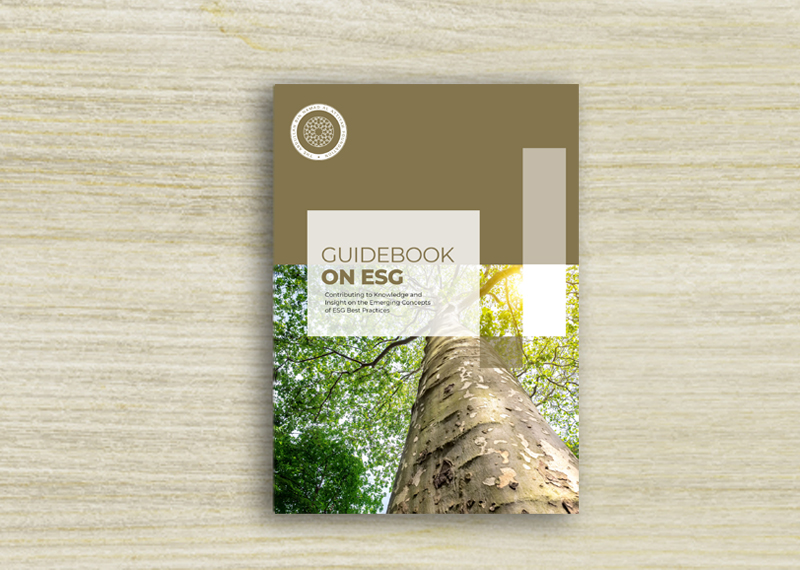The most authoritative account to date. The Al-Attiyah Foundation delves deep into the world of ESG with new guidebook
01 June 2022Doha, June 2022
The most authoritative account to date. The Al-Attiyah Foundation delves deep into the world of ESG with new guidebook
In our latest academic contribution, the Al-Attiyah Foundation has developed a guidebook on environment, social and corporate governance (ESG) and how it has changed the inner workings of some of the world’s most important institutions.
The Guidebook on ESG is a 113-page report (Download HERE), written by the Foundation’s in-house experts with decades of experience in the energy industry and sustainable development, that seeks to help policymakers, investors, companies, and stakeholders understand and navigate ESG.

ESG criteria are a set of standards for a company's behaviour used by socially conscious investors to screen potential investments. Environmental criteria consider how a company safeguards the environment, including corporate policies addressing climate change. Social criteria examine how a company manages relationships with employees, suppliers, customers, and the communities where it operates. Governance deals with a company's leadership, executive pay, audits, internal controls, and shareholder rights.
The term was coined in 2004 when a report commissioned by the United Nations, titled Who Cares Wins Connecting Financial Markets to a Changing World, called for “better inclusion of environmental, social and corporate governance (ESG) factors in investment decision.”[1] Although ESG struggled to gain traction with investors and institutions in the years immediately following the UN report, the term is now ubiquitous in the corporate landscape. By May 2021 it was mentioned in almost a fifth of earnings calls, spurred by the urgency to address climate change, as well as, some recent events, such as widespread demonstration against racial discrimination, and the outbreak of COVID-19 pandemic.
Investing within an ESG framework is now the fastest-growing segment of the asset management industry. Assets in ESG funds grew 53 per cent year on year to $2.7tn in 2021, according to data provider Morningstar.[2] There is a growing realization by the private sector, particularly big businesses, that sustainable business practices epitomised by a commitment to ESG, is no longer just a marketing tool, but a key to creating long-term value and competitiveness in the complex global economy.
The Guidebook on ESG examines the key drivers shaping the growing momentum on ESG, including increasing pressure from stakeholders; business profitability and competitiveness; demand from institutional investors and consumers; the quest to build good corporate reputation and relationship with customers and government regulations.

His Excellency Abdullah bin Hamad Al-Attiyah, Chairman of the Board of Trustees at the Al-Attiyah Foundation and former Minister of Industry and Energy of Qatar believes the publication will be of great use to members of the business community.
“This publication is an authoritative account of the benefits an ESG evaluation can bring to a companies’ stakeholders and, highlights the importance it now plays as investors consider the environmental impact of an organisation in their decision-making,” HE said.
“I am certain the Foundation’s members, partners, and other interested parties, will find the ‘Guidebook on ESG’ a reliable resource as the environmental footprint left by countries and organisations are brought even closer into focus over the coming months and years.”

To download the Guidebook on ESG for free and to gather expert insight on the energy industry and sustainable development, visit the Al-Attiyah Foundation website HERE.
[1] https://www.unepfi.org/fileadmin/events/2004/stocks/who_cares_wins_global_compact_2004.pdf
[2] https://www.ft.com/content/5ec1dfcf-eea3-42af-aea2-19d739ef8a55
